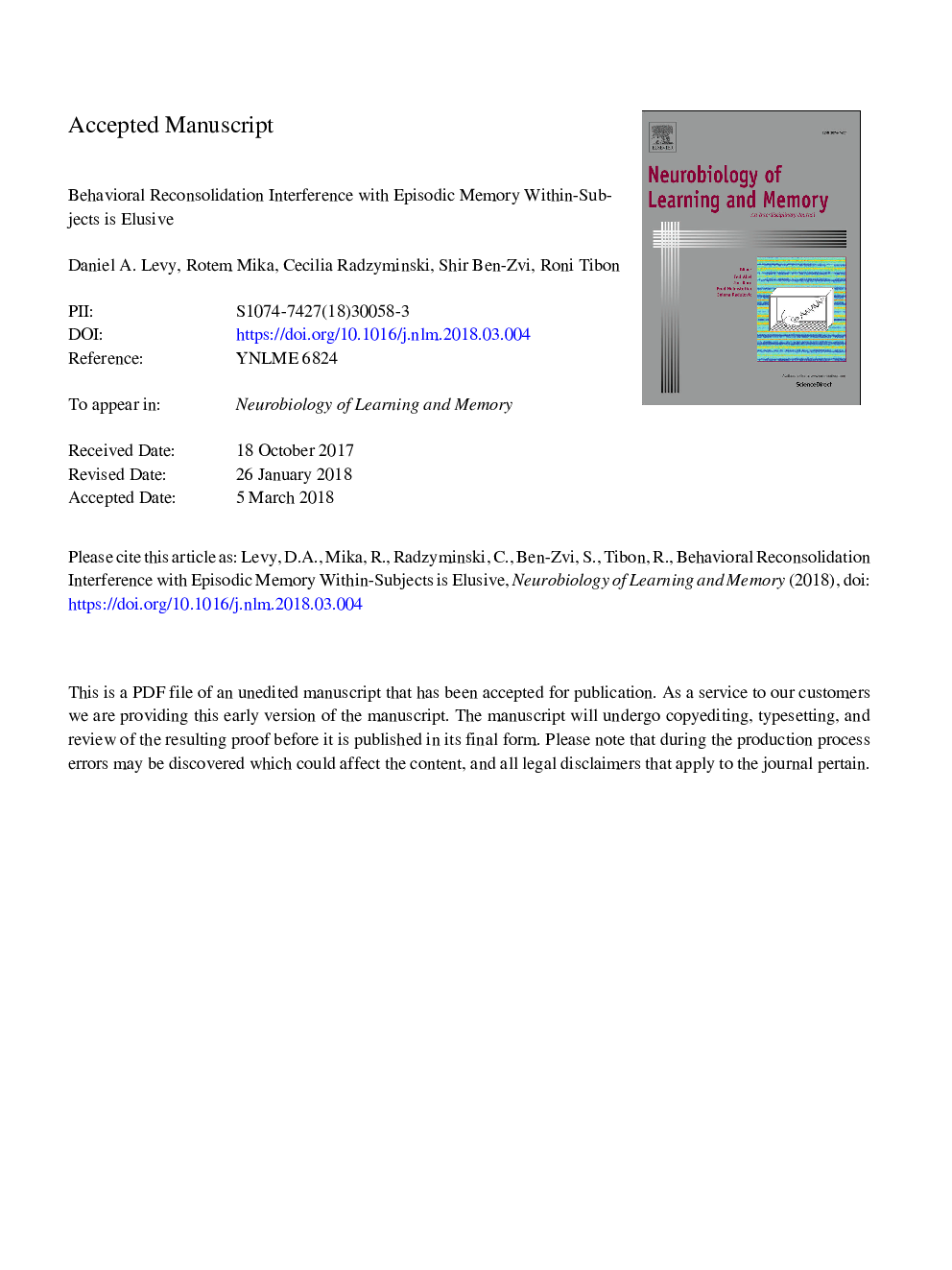| Article ID | Journal | Published Year | Pages | File Type |
|---|---|---|---|---|
| 7298836 | Neurobiology of Learning and Memory | 2018 | 31 Pages |
Abstract
In studies of behavioral reconsolidation interference, reactivation of a consolidated memory using some form of reminder is followed by the presentation of new information that can cause interference with that memory. Under these conditions, the interference not only impairs retrieval by indirect processes such as cue interference, but supposedly disrupts the original memory trace directly. Almost all studies of behavioral reconsolidation interference in episodic memory in humans have employed between-subjects paradigms, and deduced reminder effects from intrusion errors. Such studies might introduce confounds arising, for example, from differences in retrieval strategies engendered by the pre-test treatments. We therefore set out to examine whether behavioral reconsolidation interference in episodic memory might be demonstrated within-subjects and by direct memory strength rather than intrusion errors. In three separate experiments, we attempted to disrupt reconsolidation of episodic object-picture memory using a reminderâ¯+â¯retroactive interference manipulation. We applied the manipulation over three consecutive days, using a forced-choice recognition test without intrusions from interfering learning, keeping all other study and test parameters constant. No effects of reminder-potentiated interference were observed for measures of accuracy, response times, subjective expressions of recollection, or levels of confidence, as substantiated by Bayesian analyses. These results highlight the difficulty of observing clear behavioral reconsolidation interference effects within-subjects in human episodic memory, and provide some indications of what might be boundary conditions for its demonstration.
Related Topics
Life Sciences
Neuroscience
Behavioral Neuroscience
Authors
Daniel A. Levy, Rotem Mika, Cecilia Radzyminski, Shir Ben-Zvi, Roni Tibon,
